
.jpg)
As a stock investment strategy, value investing is relatively straightforward – choosing a stock that appears to be trading for less than its intrinsic value or book value. Value investors hunt down stocks that they believe the stock market is undervaluing.
Typically, the stocks that a value investor seeks is one that is cheap in the market compared to the revenue and earnings from its business. To make it simple, say you were to buy a laptop, and its original price is $2000. Now, if there is a sale and the laptop is available at a discounted price of $1750, then the value of your product hasn't changed; only its price has. You get the same laptop with all the best features at a discounted price. Similarly, value investing is nothing more or less than buying investments on sale.
Value investors, through research, scout companies the market underestimates. They see other investors overreacting to market trends, resulting in stock fluctuations but not necessarily impacting the company's long-term fundamentals. And herein lies the opportunity to make a stock market investment at a discounted price. After all, when you know a stock's true value, you can save a lot when bought on sale.

So why are stocks undervalued?
There are a few reasons why a stock could be undervalued.
Fluctuating markets coupled with a herd mentality
Some investors invest irrationally, not focusing on the company's fundamentals but following market biases. So, if the market dictates a stock is good, they will buy and vice versa. Unless you are good at price action trading, you jeopardise your earnings.
Setbacks and Bad News
Good valuation companies might have faced some setbacks like litigation and recalls. But one bad experience doesn't indicate its fundamental value has changed.
Cyclicality
Companies are not immune to ups and downs in the economic cycle, which can impact their profits and stock value. Yet it doesn't affect its long-term value.

How to identify an excellent value stock?
In order to be a good value investor, you need to do a lot of research. You must identify which stocks are underestimated in the market and measure them with the company's intrinsic value. It isn’t an easy task but could be worth the risk!
By thoroughly understanding a company's value and assessing its business prospects, you can identify which stocks are your ideal value stocks. Here are some of the attractive characteristics that appeal to investors who use value investing strategies:

So how do you calculate a company's intrinsic value?
Intrinsic value is a measure of what an asset is worth. In essence, figuring out the present value of a company's future cash flows is necessary to calculate the intrinsic value of a company. As a result, predicting future cash flows and the interest rate used to discount those cash flows to the present value is necessary.
Here are two significant ways to determine if a company's stock is below its intrinsic value.
Price-to-Book (P/B) Ratio
The P/B ratio compares a company’s stock price to its book value per share. Book Value per share is the company’s net worth divided by the number of outstanding shares. In some cases, investors will exclude certain intangible assets (e.g., goodwill) from the calculation of the P/B ratio. Theoretically, any figure below 1.0 signifies that a company's stock is trading below its net worth.
Price-to-Earnings (P/E) Ratio
The P/E ratio compares a company’s stock price to its annual earnings. For instance, a P/E ratio of 20x indicates that it will take 20 years at the company’s current earnings to equal the cost of the share. The lower the P/E ratio, the more likely the company is considered a value stock.
Do remember, P/B and P/E metrics are calculated for analysis and cannot solely determine if it is a good stock. A lower P/B and P/E ratio doesn’t necessarily mean a company is a good investment. These metrics are a starting point for further analysis.
Besides, P/B and P/E are popular relative valuation multiples where a company's value is compared to that of its competitors or industry peers to assess the firm's financial worth. For example, if the average P/E for an industry is 20x and a particular company in that industry is trading at 15x earnings, then the stock is relatively undervalued to its peers.

Am I a value investor?
Value investing is not meant for those who prefer following the latest market trends. An ideal value investor would do their own research while being resilient in the face of a bullish market.
Most value investors are safe investors who are looking to keep their losses to the minimum and increase their odds of positive returns. They look at the long-term and know they will get considerable payback when the markets get bearish as the company's intrinsic value makes it easier to ride out a downturn. They are patient because they know it takes time for a stock to be repriced at its appropriate level. If you find value investing appealing, you can contact our market consultant for support and start share trading online with us.
The content in this blog, including any research, analysis, opinions, forecasts, or other information (collectively, "Information"), is provided by Century Financial Consultancy LLC (CFC) for marketing, educational, and general informational purposes only. It should not be construed as investment advice, a recommendation, or a solicitation to buy or sell any financial instruments.
This Information may also be published across various channels, including CFC’s website, third-party platforms, newsletters, marketing materials, emails, social media, messaging apps, webinars, and other communications. While CFC strives for accuracy, we do not guarantee the completeness, reliability, or timeliness of any content. Any decisions made based on this Information are at your own risk. CFC accepts no liability for any loss or damage arising from its use.
Trading financial products involves significant risk and may not be suitable for all investors. Please ensure you fully understand the risks and seek independent professional advice if necessary.
Please refer to the full risk disclosure mentioned on our website.
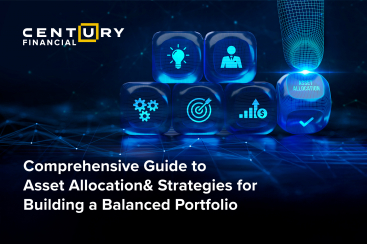
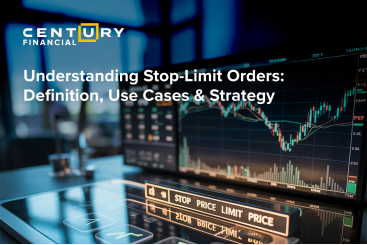
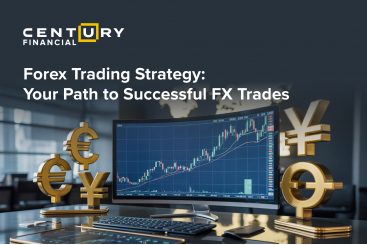
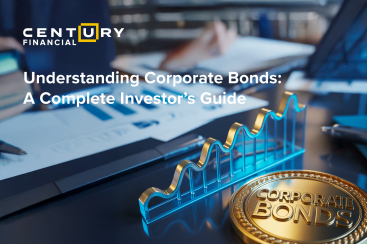
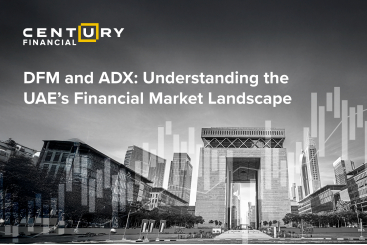




.png)
.png)
.png)
.png)


